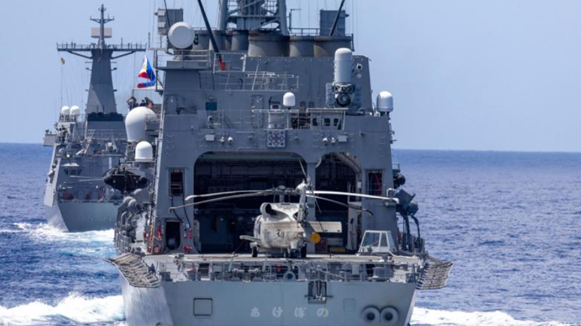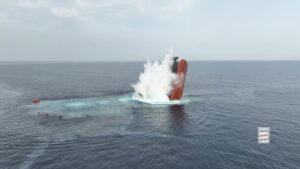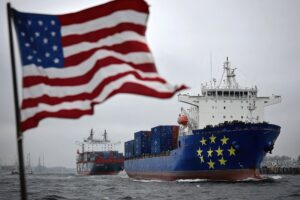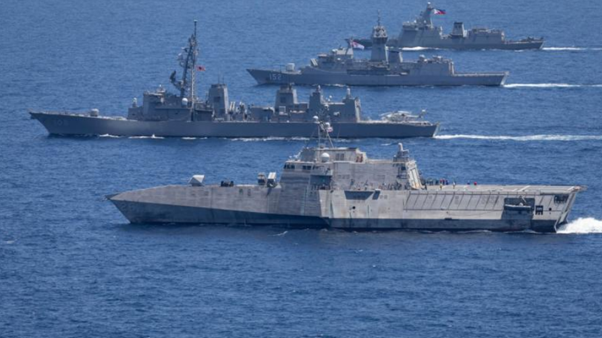
Defence forces of the U.S., Japan, Australia and the Philippines conducted “maritime cooperative activity within the Philippine’s exclusive economic zone on April 7,” amid heightened tension between Manila and Beijing in the disputed waters.
In a joint statement released Friday, the four nations’ defense chiefs said the “conduct of a Maritime Cooperative Activity (MCA) within the Philippines’ exclusive economic zone (EEZ) demonstrates a collective commitment to promote and strengthen regional and international support for an open and inclusive Indo-Pacific.”
“Every country should be free to conduct lawful air and maritime operations,” US Defense Secretary Lloyd J. Austin III said in the statement.
“These activities with our allies Australia, Japan, and the Philippines underscore our shared commitment to ensuring that all countries are free to fly, sail, and operate wherever international law allows. Our operations together support peace and stability at the heart of our shared vision for a free and open region.”
The one-day maritime exercises included officer-of-the-watch manoeuvres, tactical manoeuvring and anti-submarine warfare exercises involving air assets from all four participants.
The naval vessels that participated in the maritime activity included Philippine Navy’s BRP Antonio Luna, USS Mobile, Japan Maritime Self-Defense Forces JS Akebono, and Royal Australian Navy HMAS Warramunga.
The activity will strengthen the interoperability of the countries’ armed forces doctrines, tactics, techniques and procedures, the joint statement read.
Meanwhile, the four nations have reaffirmed their position that “the 2016 South China Sea Arbitral Tribunal Award is final and legally binding decision on the parties to the dispute.”
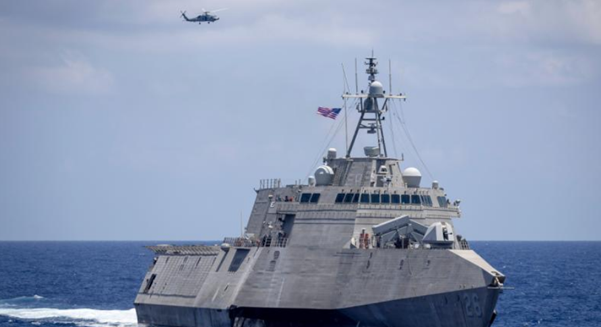
His Excellency KIHARA, Minoru, Minister of Defense, Japan said: “Japan believes that the issue concerning the South China Sea is directly related to the peace and stability of the region and is a legitimate concern of the international community including Japan, Australia, the Philippines, and the United States, and thus Japan opposes any unilateral changes to the status quo by force, such attempts as well as any actions that increase tensions in the South China Sea.”
The Honourable Richard Marles MP, Deputy Prime Minister and Minister for Defence, Australia noted: “Australia has consistently emphasised the importance for all states to be able to exercise rights and freedoms, including freedom of navigation, in a manner consistent with international law, particularly the United Nations Convention on the Law of the Sea (UNCLOS).”
The Honorable Gilberto C. Teodoro Jr., Secretary of National Defense, Philippines added: “The Comprehensive Archipelagic Defense Concept (CADC) that we are implementing includes strengthening and deepening cooperation and interoperability with all nations, big and small, to maintain regional peace and stability as well as good order at sea based on international law, principally UNCLOS.”

